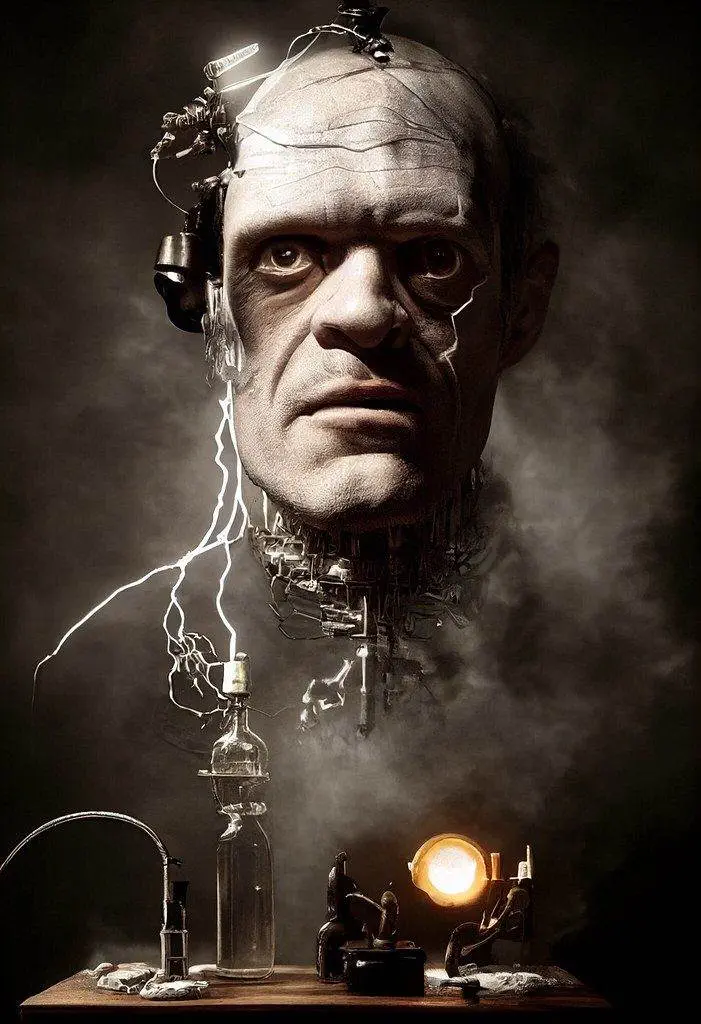Mary Shelley’s acclaimed novel Frankenstein, or The Modern Prometheus tells the dark gothic tale of Victor Frankenstein, a scientist obsessed with creating life who constructs a sentient creature from corpse parts. Published in 1818 when Shelley was just 20 years old, Frankenstein gave birth to the modern science fiction genre and introduced one of literature’s most tragic monsters. Two centuries later, the book continues to captivate readers with its thrilling story, moral philosophy and pioneering vision.
Table of Contents
Plot Summary
Brilliant scientist Victor Frankenstein becomes consumed with harnessing the spark of life. He assembles a creature from body parts then brings it to life, only to recoil at its hideous appearance. The rejected monster flees and swears revenge after being spurned by humans he encounters.
Meanwhile, Victor’s family assumes he is dead after not receiving any letters. Victor returns home on the day his younger brother William is murdered. The grief-stricken family adopts orphan Justine, who is falsely accused and executed for William’s death, though Victor suspects his monster’s hand.
The monster meets Victor and demands he create a female companion. Though initially agreeing, Victor destroys her half-finished. Furious, the monster promises more ruination and kills Victor’s best friend Henry. After marrying his adopted sister Elizabeth, Victor sails her to Europe to protect her, but the monster strangles her on their honeymoon.
Victor dedicates himself to destroying the monster who has vowed to be with him on Victor’s wedding night. After months pursuing the monster to the Arctic, Victor collapses and relates his story to the explorer Walton before dying. The monster appears in sorrow and declares he will end his own life in despair.
Themes and Analysis
Key themes in Frankenstein include:
- Dangers of unrestrained ambition
- Pursuit of dangerous knowledge
- Loneliness and alienation
- Rejection of human compassion
- Revenge and destruction
- Interplay of nature and monstrosity
- Gothic doubling between creator and creature
Shelley pioneered science fiction with a chilling story exploring ethics and consequence. The novel grapples with philosophical questions about creation, pride, justice and humanity’s capacity for cruelty and compassion.
Background and Mary Shelley
Mary Shelley was an English novelist born in 1797, daughter of philosophers William Godwin and Mary Wollstonecraft. In 1816, she began writing Frankenstein during a contest with her husband, Romantic poet Percy Bysshe Shelley, and Lord Byron.
Relevant context includes:
- Romanticism’s reaction to the Enlightenment’s reason and science
- Scientific experiments with electricity and anatomy
- Frankenstein initially published anonymously in 1818
- Shelley refined the 1831 edition with deeper themes
- Her mother’s early death leftShelley concerned with life’s origins
- Shelley pioneered science fiction and female gothic fiction
Shelley led a literary life marked by tragedy. Frankenstein drew from her struggles with responsibility as both a mother and author. The novel remains her most enduring legacy.
Analysis of Characters
Victor Frankenstein – The protagonist driven by obsession to create life, only to abandon his creation and reap the consequences. His ambition leads to ruin.
The Creature – Frankenstein’s sentient monster who turns to evil after being rejected by mankind. He begins innocent but becomes vengeful.

Robert Walton – An explorer in the Arctic who encounters Victor and records his tragic story as a frame tale. He serves as foil to Victor.
Henry Clerval – Victor’s devoted friend since childhood who provides kindness and moral balance. His murder devastates Victor.
Elizabeth Lavenza – Victor’s adopted sister and fiancee whose strong family ties make her the monster’s target.
Alphonse and Caroline Frankenstein – Victor’s parents who nurture him yet become victims of his destructive creation.
Justine Moritz – A kind friend wrongly executed for William’s murder. Her death marks the monster’s first indirect kill.
Influence and Significance
Frankenstein proved tremendously influential in literature and culture:
- Established the science fiction genre by pioneering a scientific premise for horror
- Introduced the “mad scientist” character archetype
- Inspired countless monster characters in books and films
- Shaped the horror genre with gothic mood and darker Romantic themes
- The monster became an iconic figure embedded in popular consciousness
- Explored philosophical questions about scientific responsibility
- Enduring interest through analysis from feminist and psychoanalytic lenses
- Questioned gender roles as Victor creates life without female biology
- Shelley became a feminist icon as author of this groundbreaking work
Why Read Frankenstein
Reasons for Frankenstein’s enduring status as a classic include:
- Gripping gothic narrative about the horrors of unchecked creativity
- Timeless themes of the corrupting nature of obsession and revenge
- Prescient questions about ethics in science and technology
- Poignant exploration of justice, compassion and natural rights
- Creature and Victor as quintessential doppelgangers
- Memorable characters like Dr. Frankenstein and his wretched creation
- Subversion of Romantic ideals about beauty and monstrosity
- Pioneering development of science fiction and gothic horror
- Creature’s evolution from innocent to murderous due to humanity’s flaws
- Shelley’s elegant prose and superb capacity for suspense
Conclusion
Mary Shelley’s Frankenstein remains vitally relevant today as both a thrilling gothic tale and profound meditation on morality. The story tackles thorny questions about parenthood, education, ethics, compassion, prejudice and the dangers of unchecked ambitions. Victor and his creature’s tragic fates reveal the supreme importance of human connection. Shelley’s pioneering novel lives eternally as literature’s first science fiction story and deepest myth of scientific hubris gone awry when knowledge outpaces wisdom.


